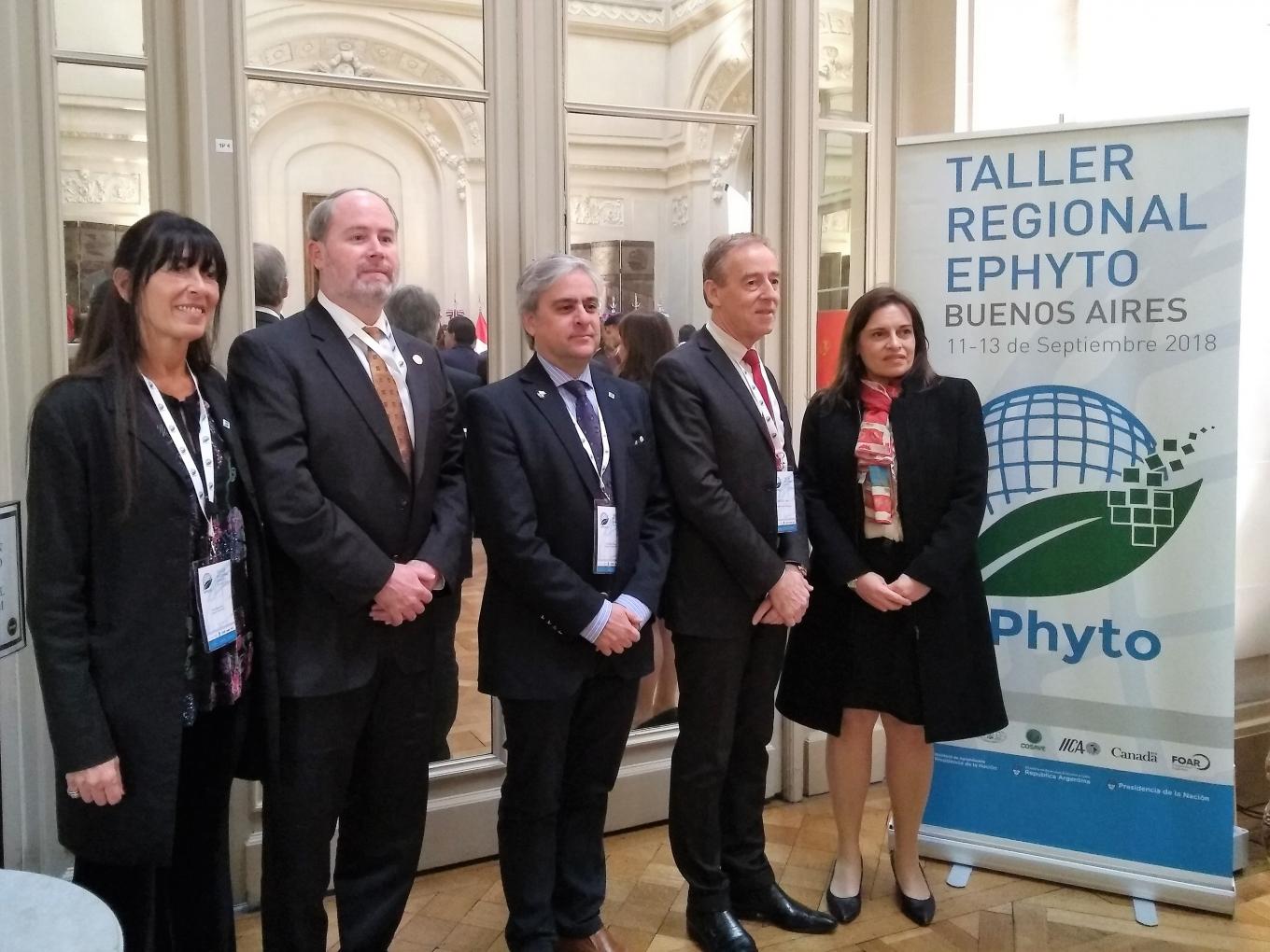Robert Ahern, head of Agricultural Health and Food Safety (AHFS) at the Inter-American Institute for Cooperation on Agriculture (IICA), argued that the challenge the region faces in implementing electronic phytosanitary certification, which will prove critical to market access, will be to adjust for the differences in each country.

Buenos Aires, 13 September 2018 (IICA). Robert Ahern, the head of Agricultural Health and Food Safety at the Inter-American Institute for Cooperation on Agriculture (IICA), described the electronic phytosanitary certification project or ePhyto as, “a sophisticated solution that will allow countries to abide by commitments undertaken under the Trade Facilitation Agreement” of the World Trade Organization (WTO). Ahern believes that the challenge for the region will be to adjust for differences in each of the national systems. “All of the countries have assumed commitments to improve their certification systems, under the Trade Facilitation Agreement” of the WTO and, “this project provides a sophisticated solution. Everyone is waiting to see if it will meet expectations”, said Ahern after participating in the regional workshop on “Experience Sharing in Electronic Phytosanitary Certification Systems” that took place this week in Buenos Aires. The event was organized by Argentina’s Ministry of Foreign Affairs and the Embassy of Australia in Argentina, under the joint sponsorship of IICA and the Southern Cone Plant Health Committee (COSAVE).
The ePhyto project is an initiative of the International Plant Protection Convention that is seeking to harmonize standards, to develop a generic national system and to implement a global hub to exchange certificates, with a view to making trade in products of plant origin more streamlined and secure.
The IICA expert argued that, “We are often unsure as to how to satisfy WTO commitments. This project is a tool that countries can use to fulfill commitments under the agreement”.
Ahern expressed the view that one of the challenges of the ePhyto project is that, “the systems of countries in the region are not at the same level of development”, and although, “most of them are not starting from zero, the disadvantage is that they are moving in different directions”.
“Organization will pose a challenge”, he said, “and the expectation and hope is that this project will serve as an umbrella, under which these countries can organize themselves”.
Lourdes Fonallera, International Specialist in Agricultural Health and Food Safety at IICA’s Office in Uruguay, who also attended the workshop in Buenos Aires, remarked that the implementation of ePhyto will bring, “a series of benefits, since it allows for improved tracing and tracking of the entire system, from production to exportation”.
She went on to explain, “This helps in managing the information in phytosanitary certificates and simplifies certification processes. It also eliminates tedious paper work and the falsifying of documents”.
Fonallera stressed that “it is clear that the world is moving towards electronic certification, and if the region does not do so as well, a time will come when we will find it difficult to access markets”.
There is no deadline for the implementation of ePhyto, however, the specialist stated that, “We have set a timetable to encourage countries to begin the process”, recognizing that, “they all have to contend with different situations, problems and challenges and the International Plant Protection Convention does not want anyone to be left out”.
More information:
Sonia Novello, Communication Specialist – IICA Delegation in Argentina











